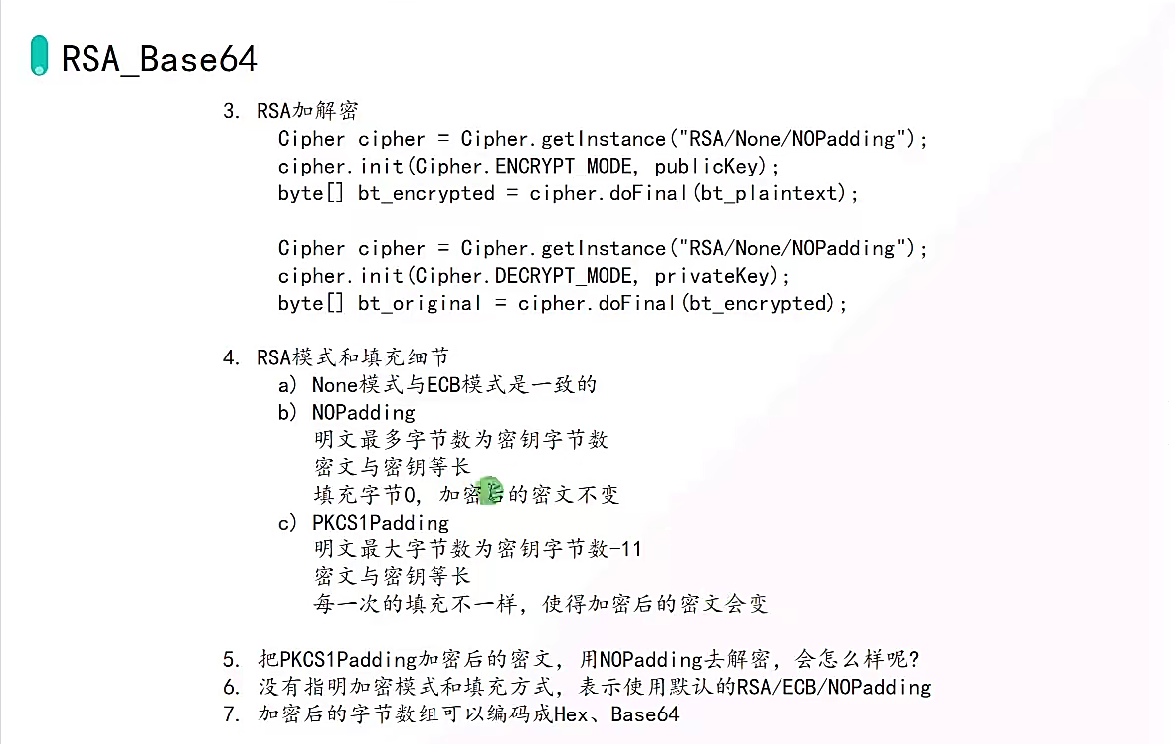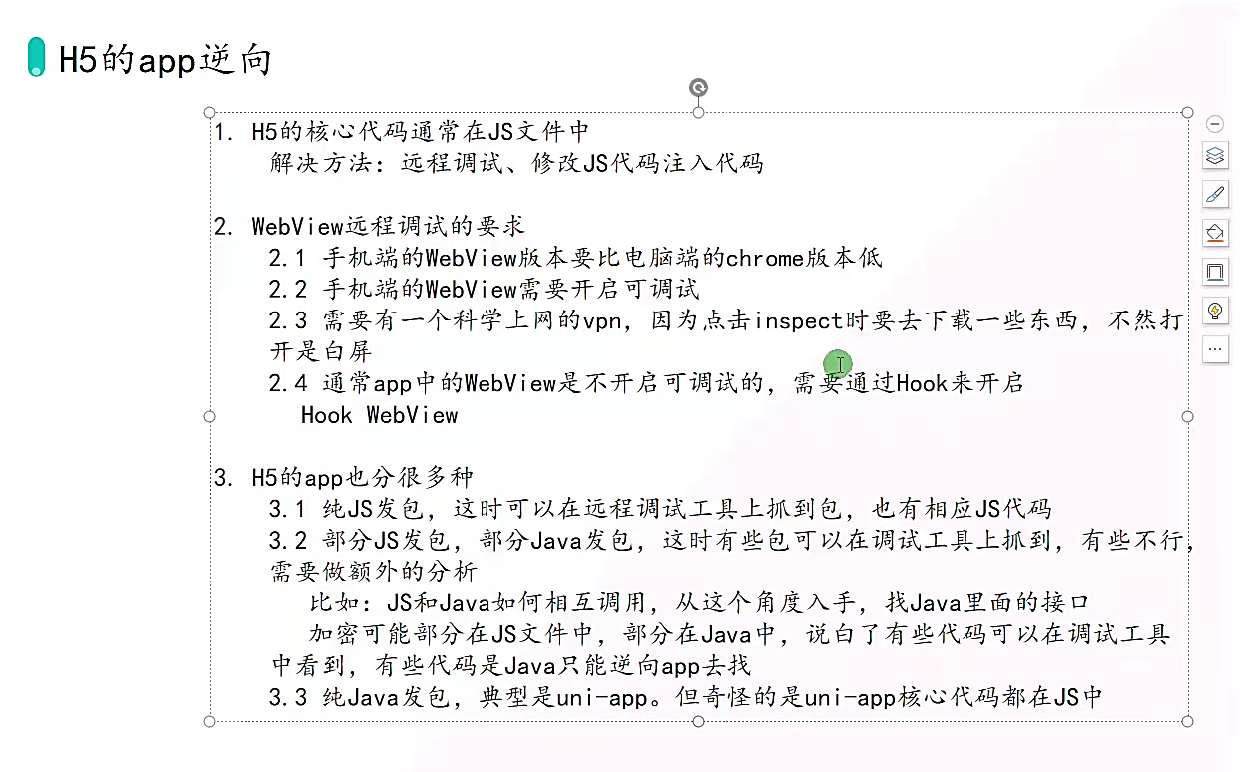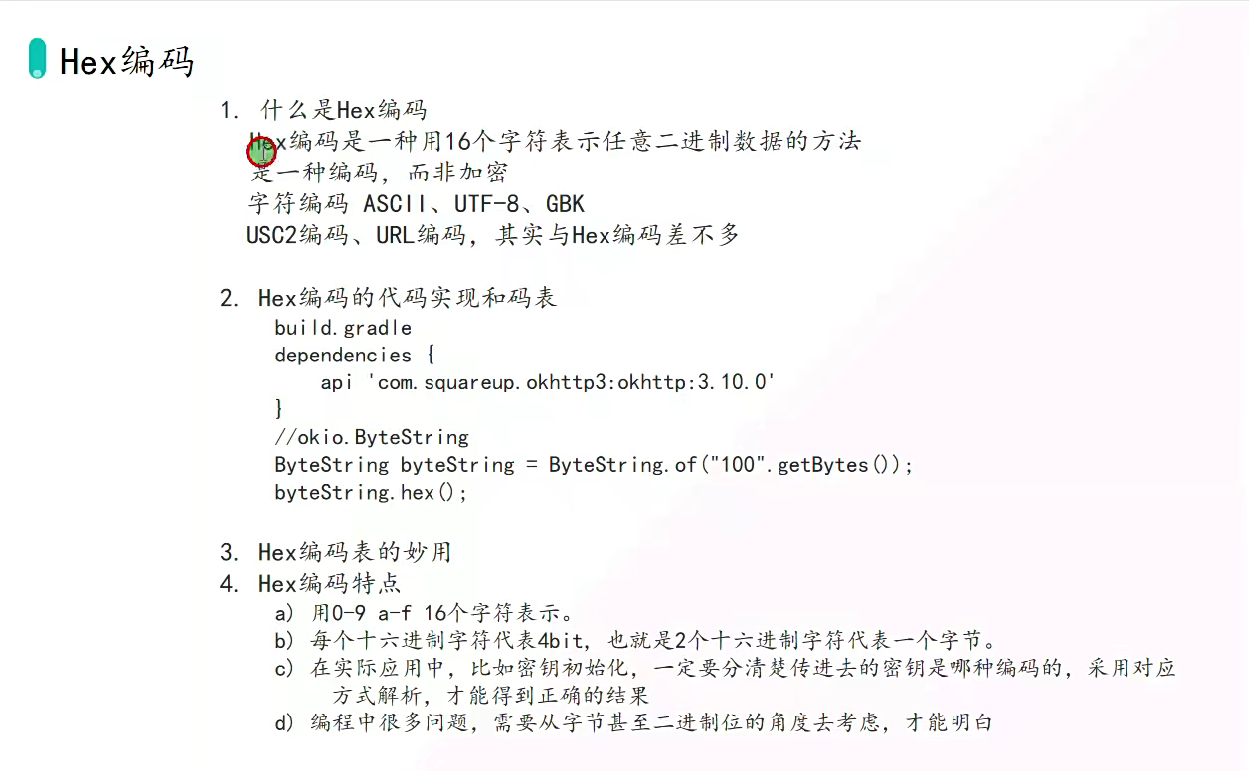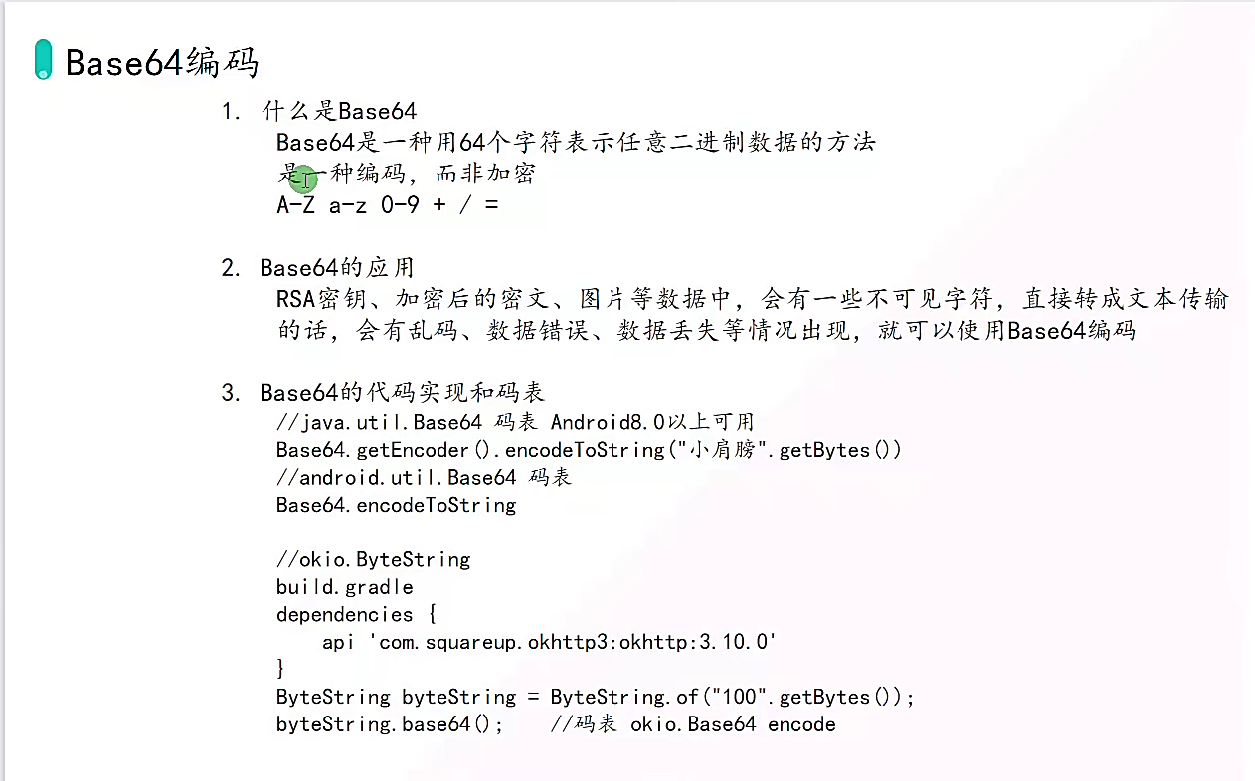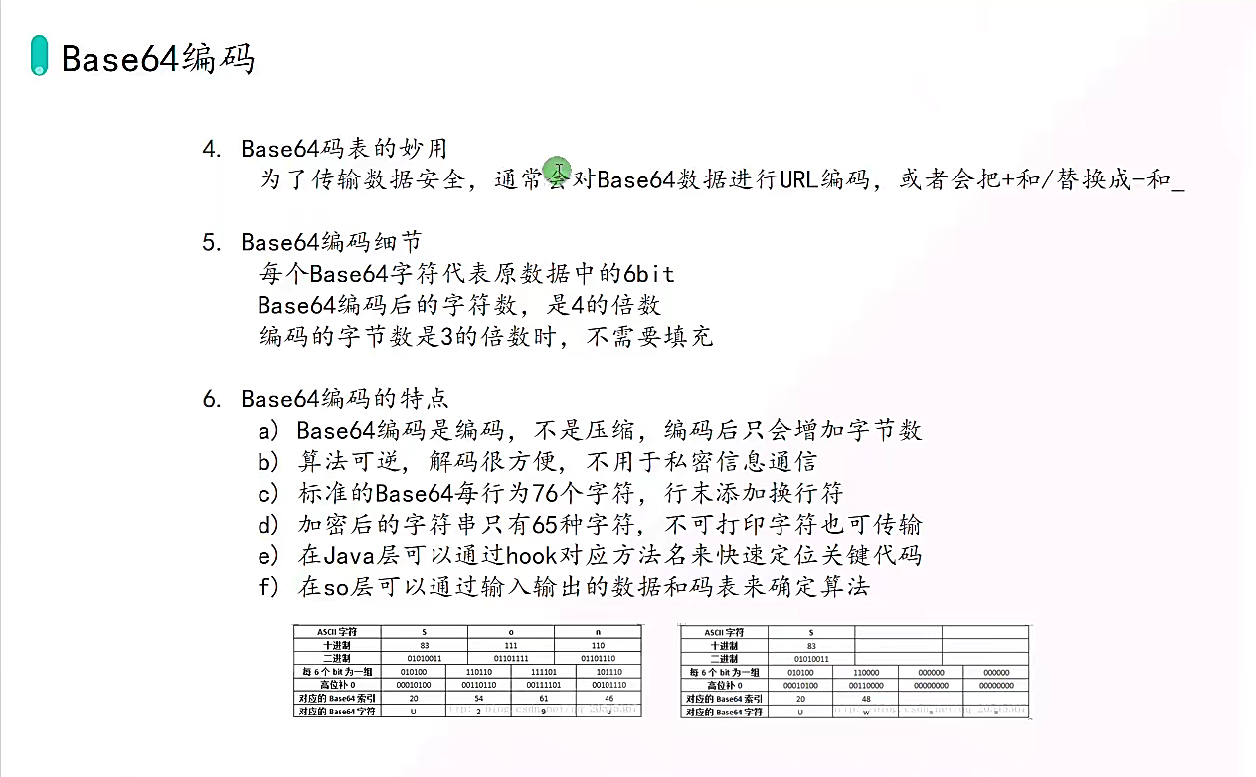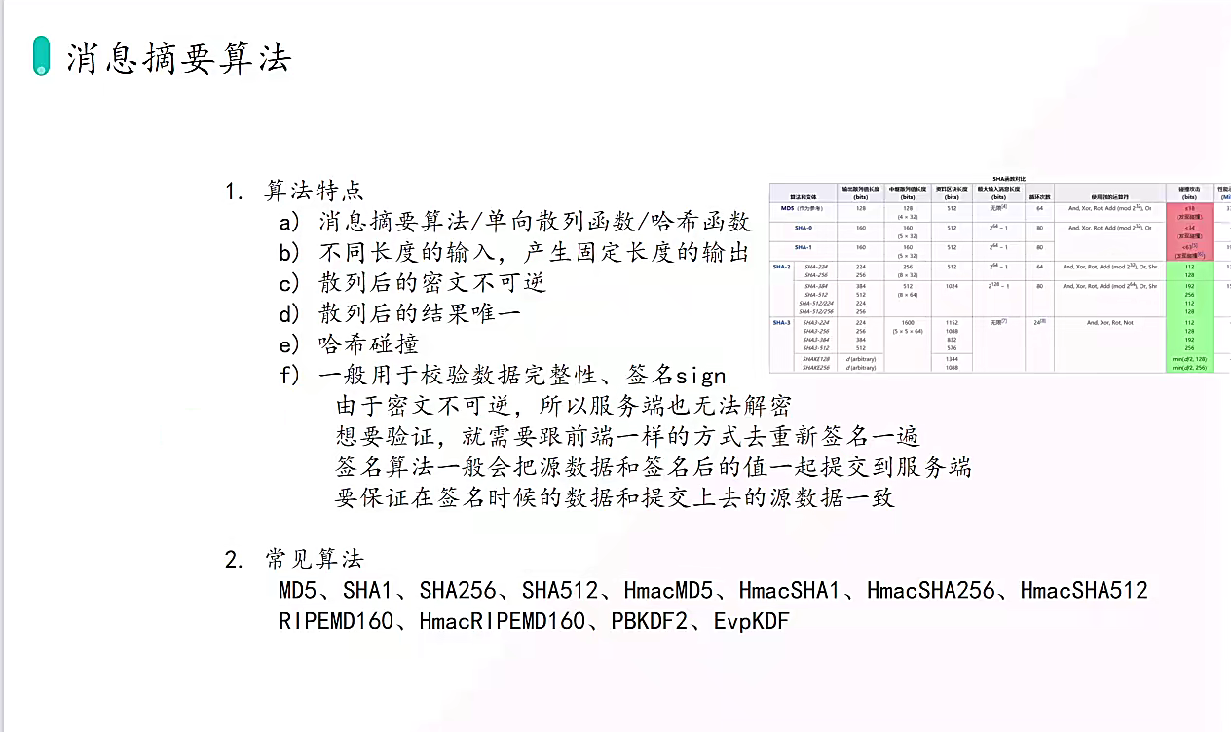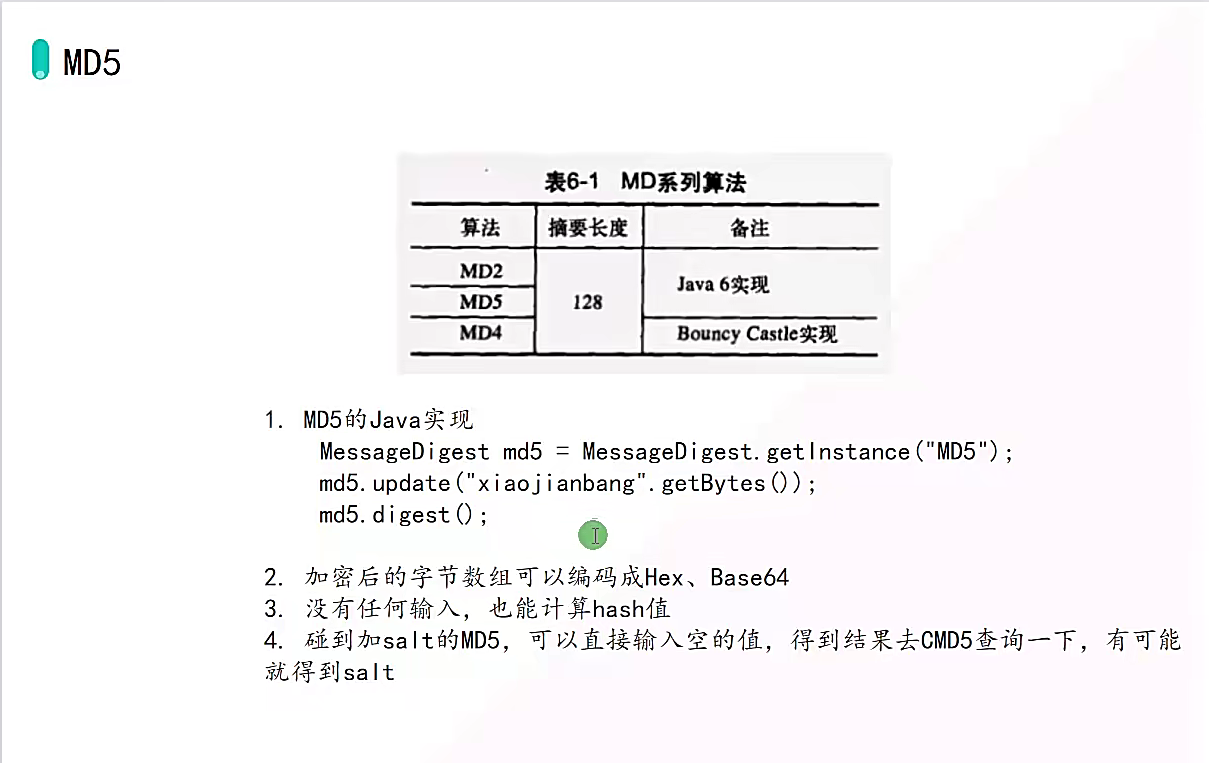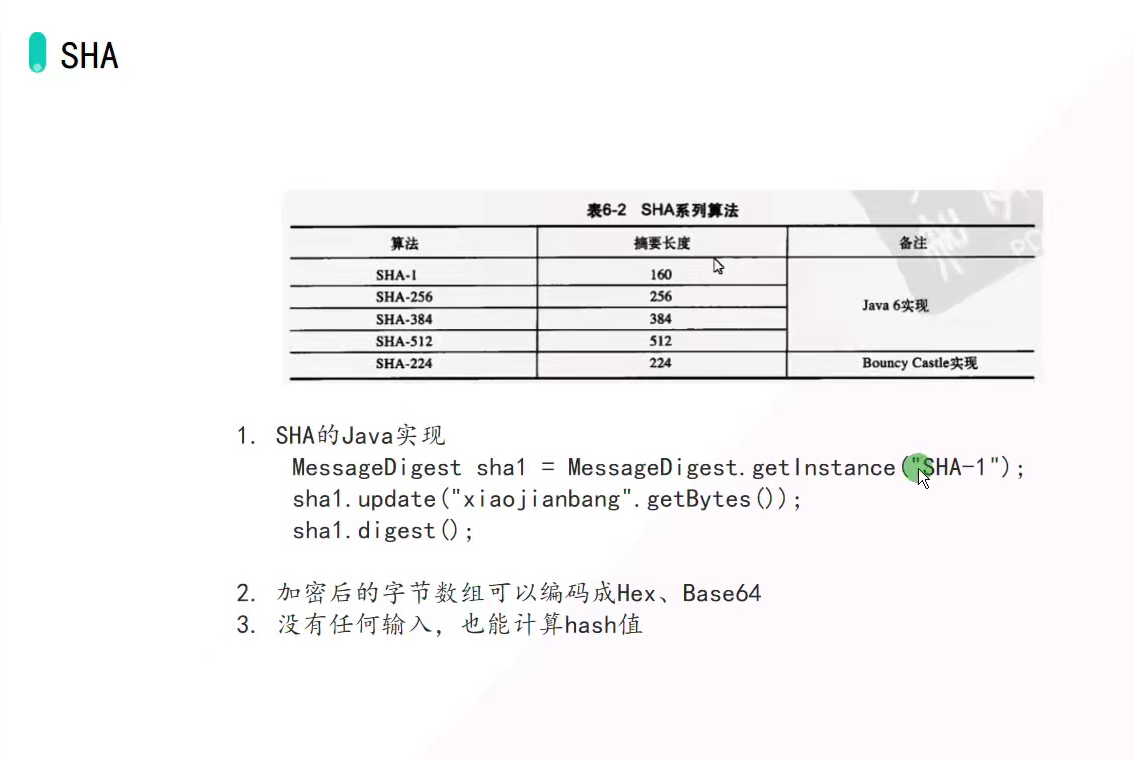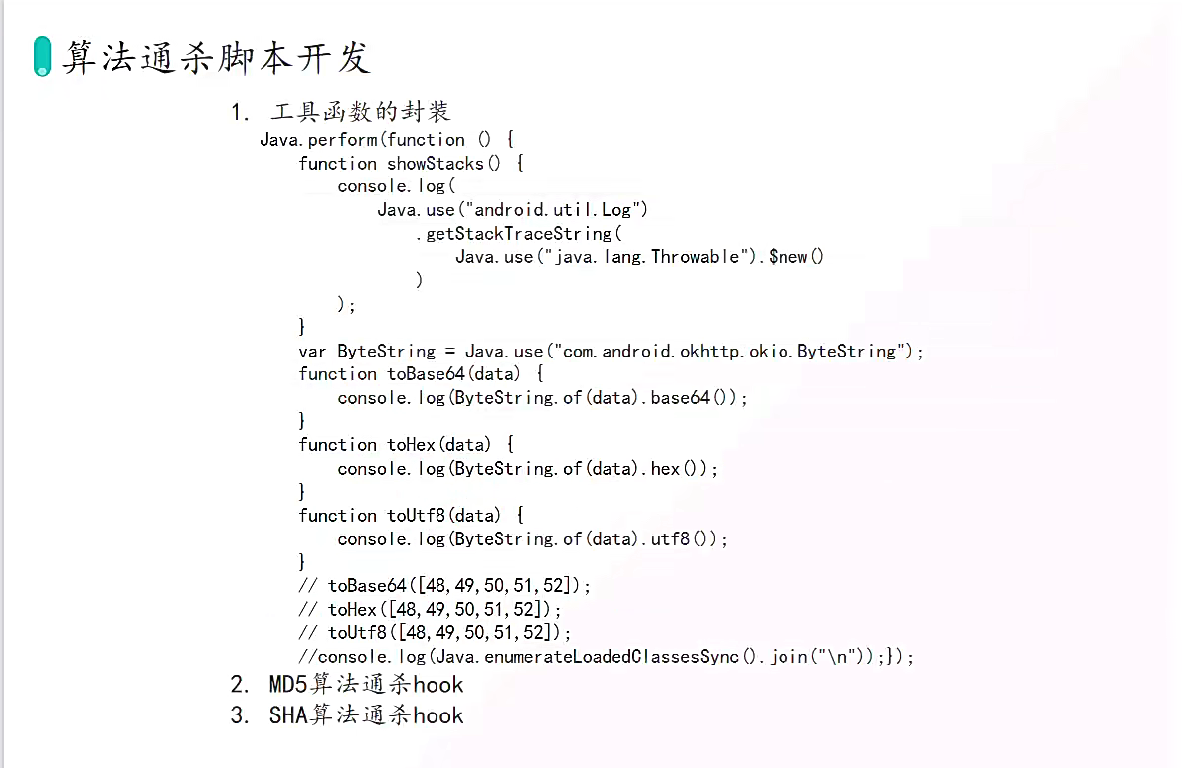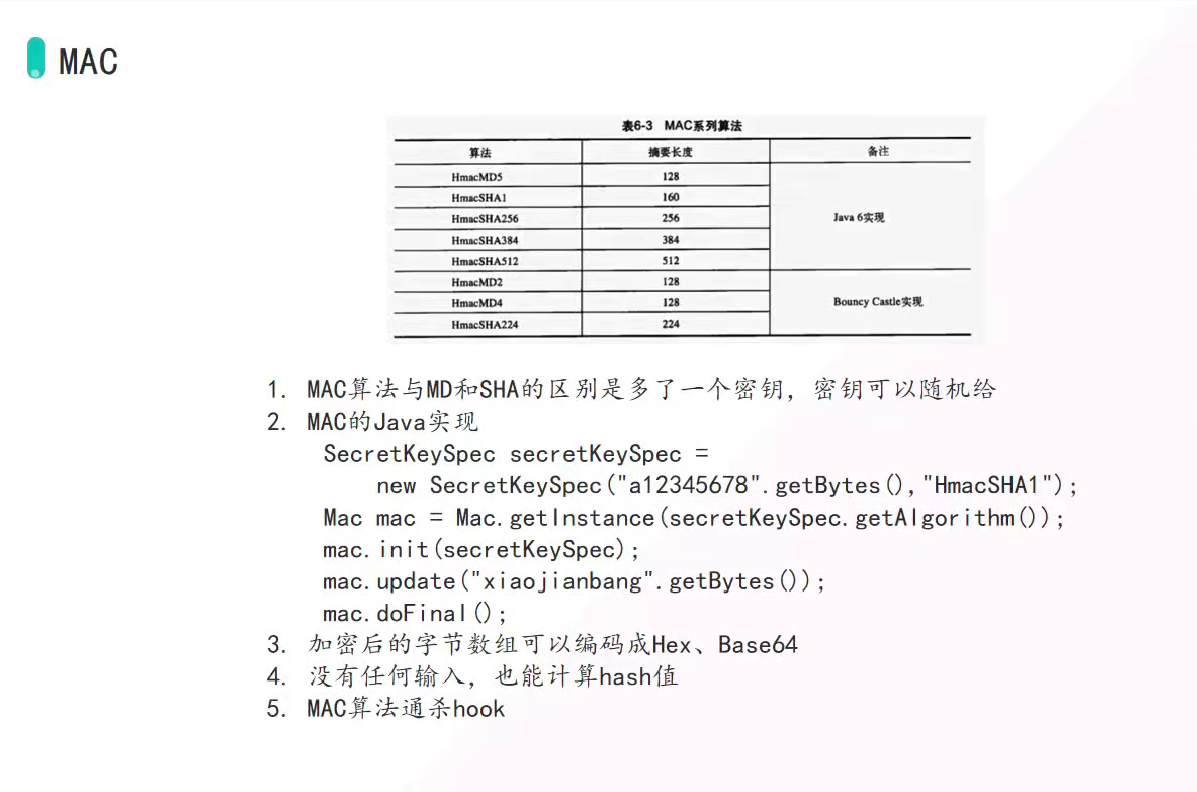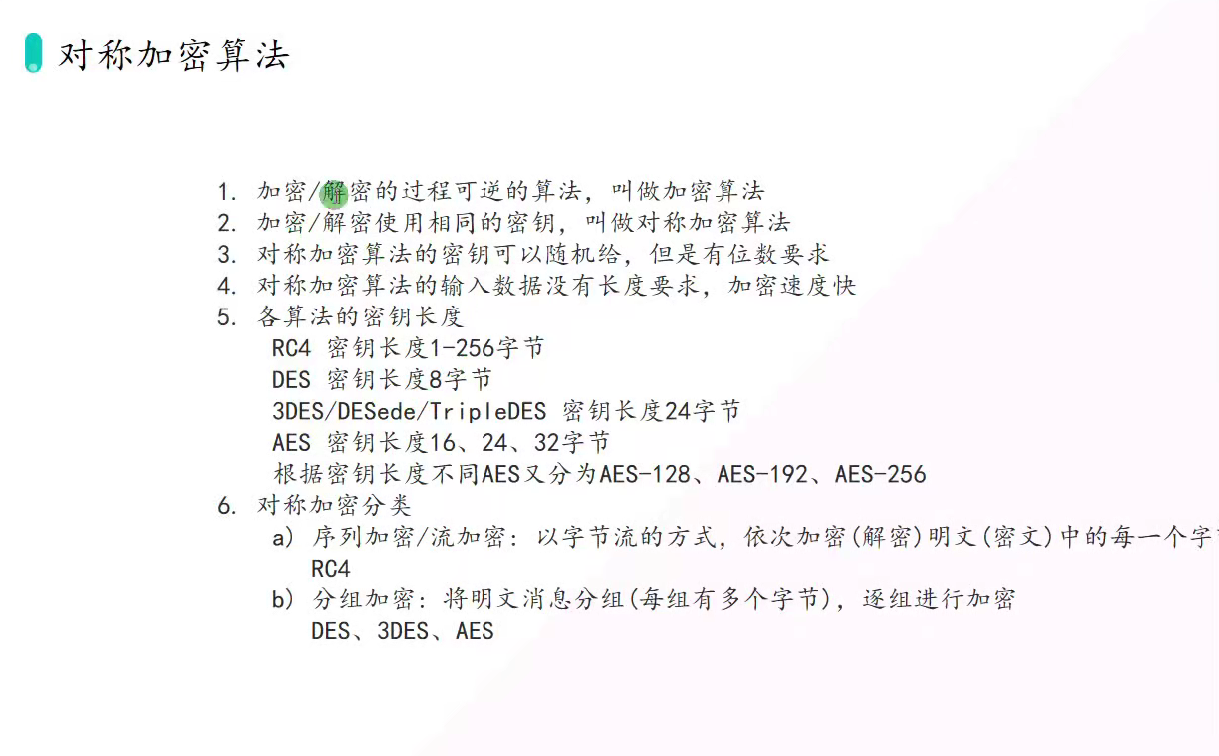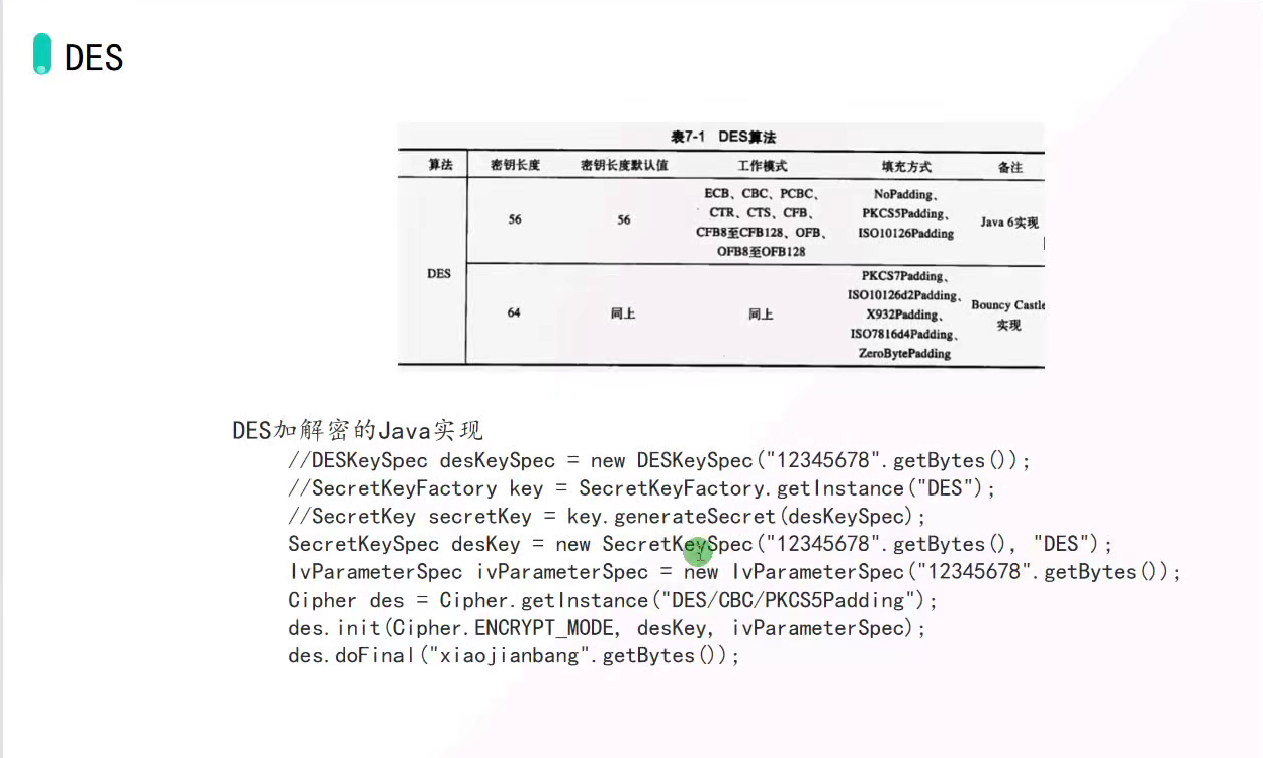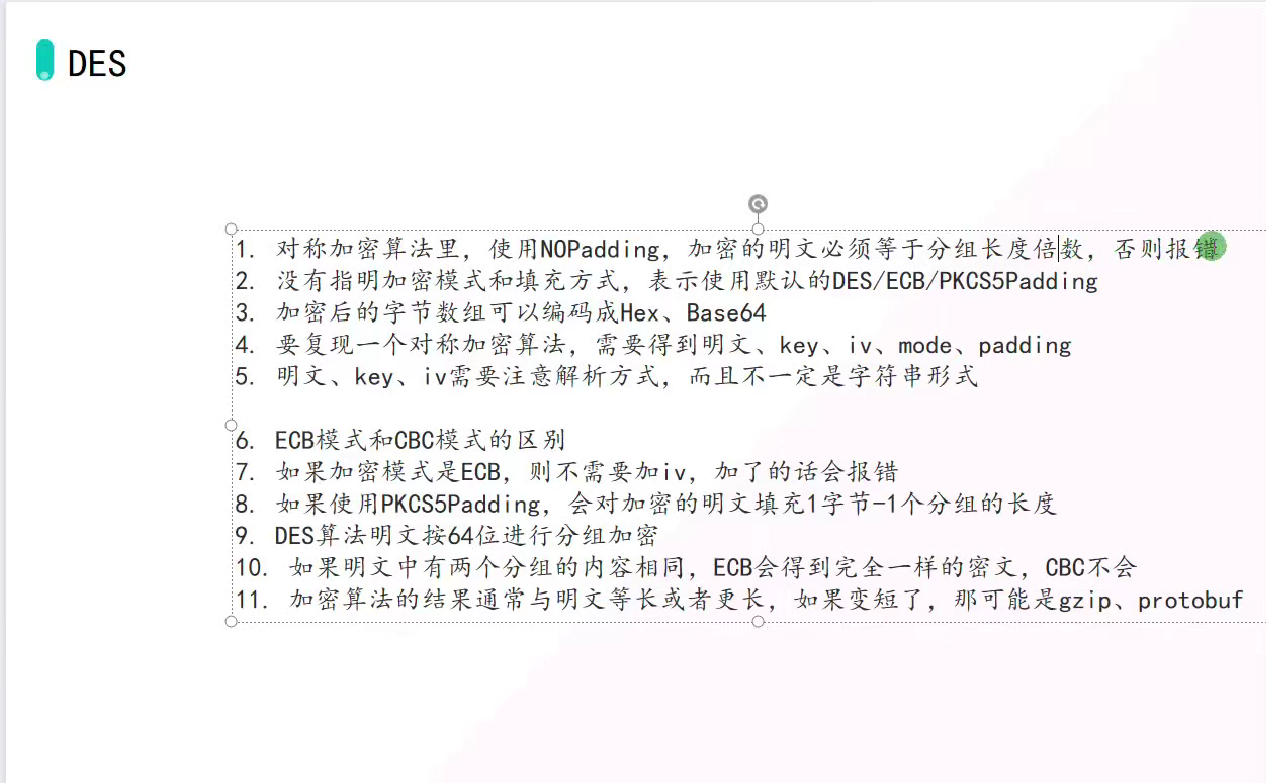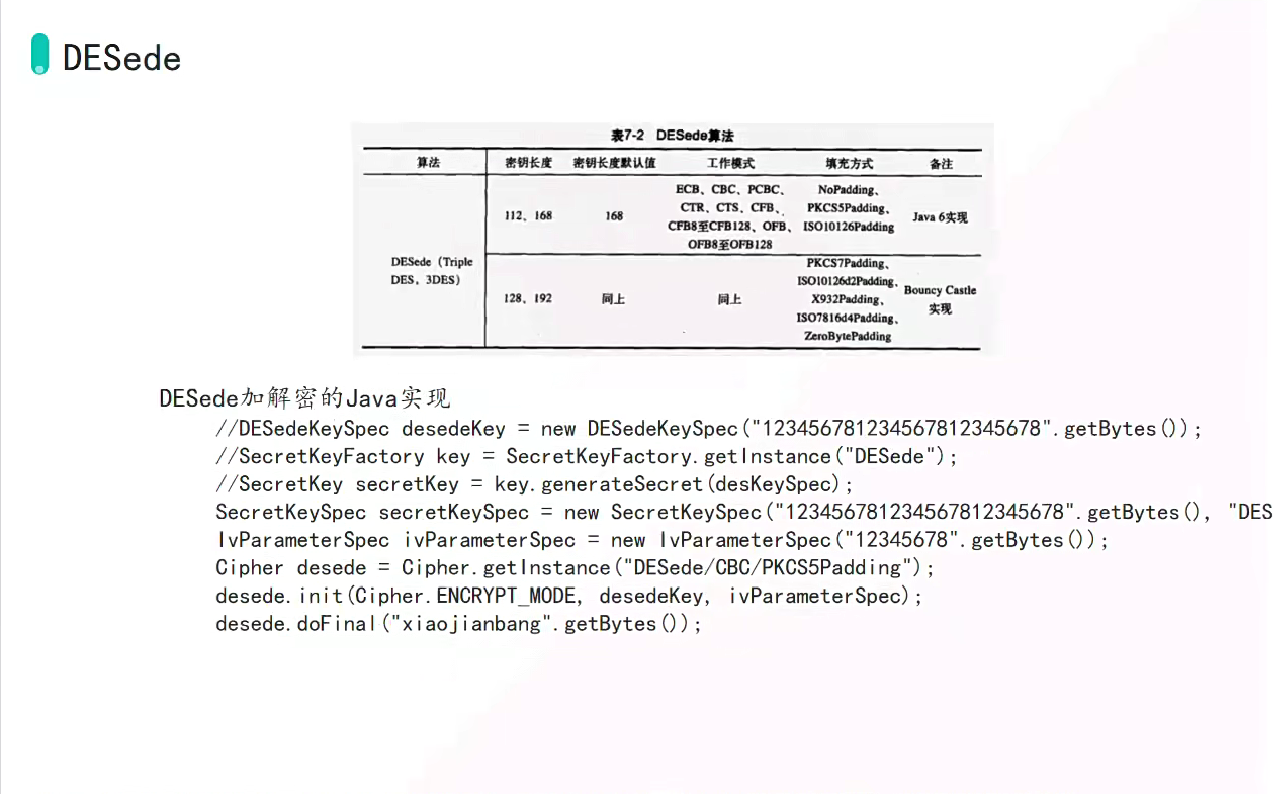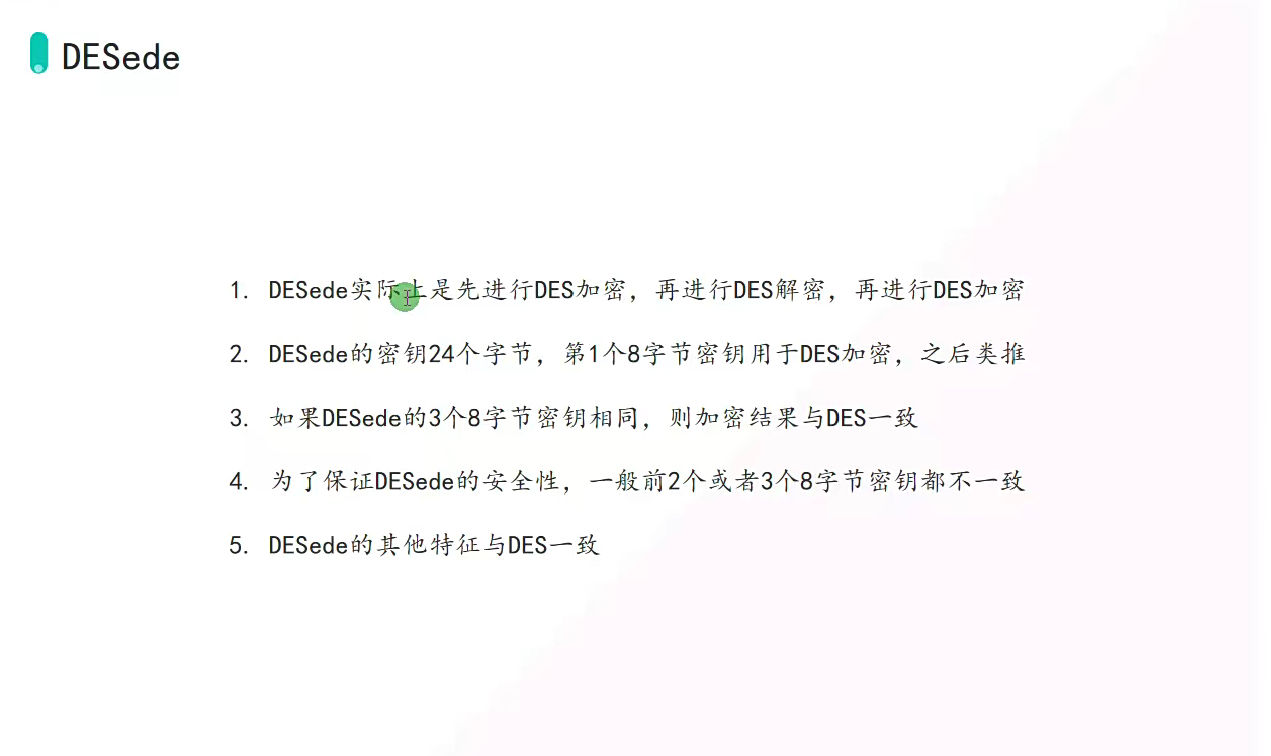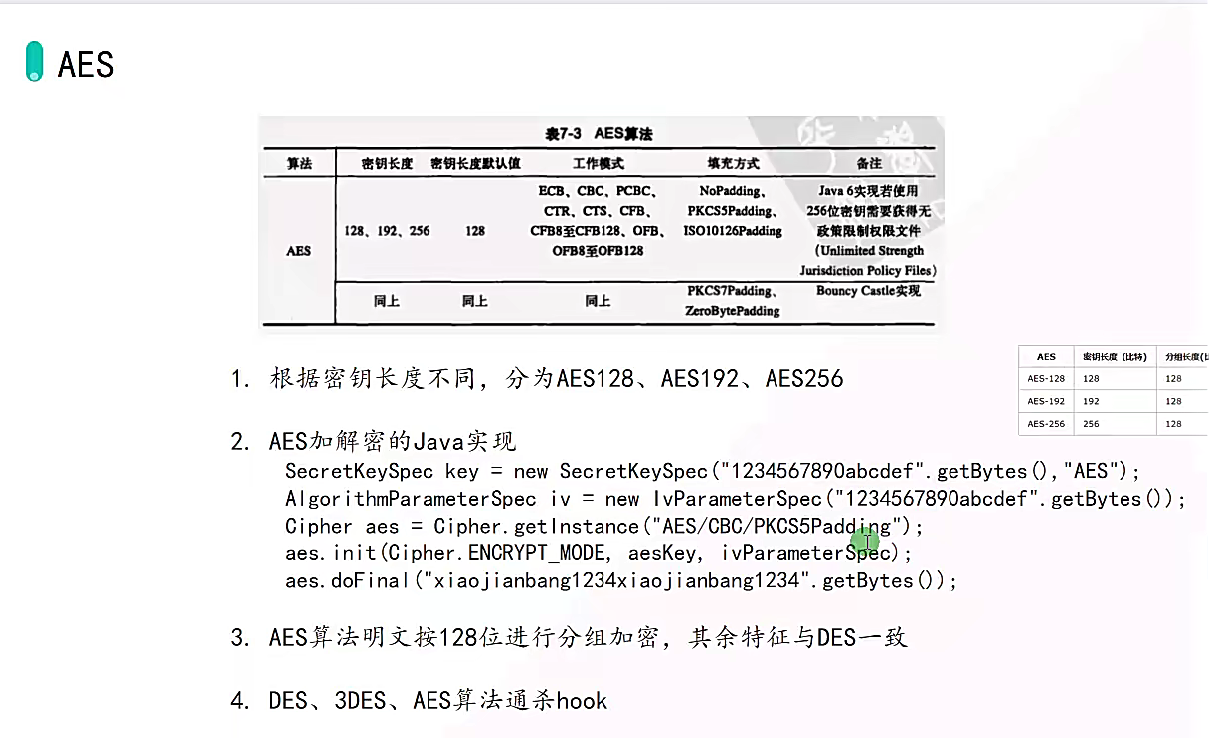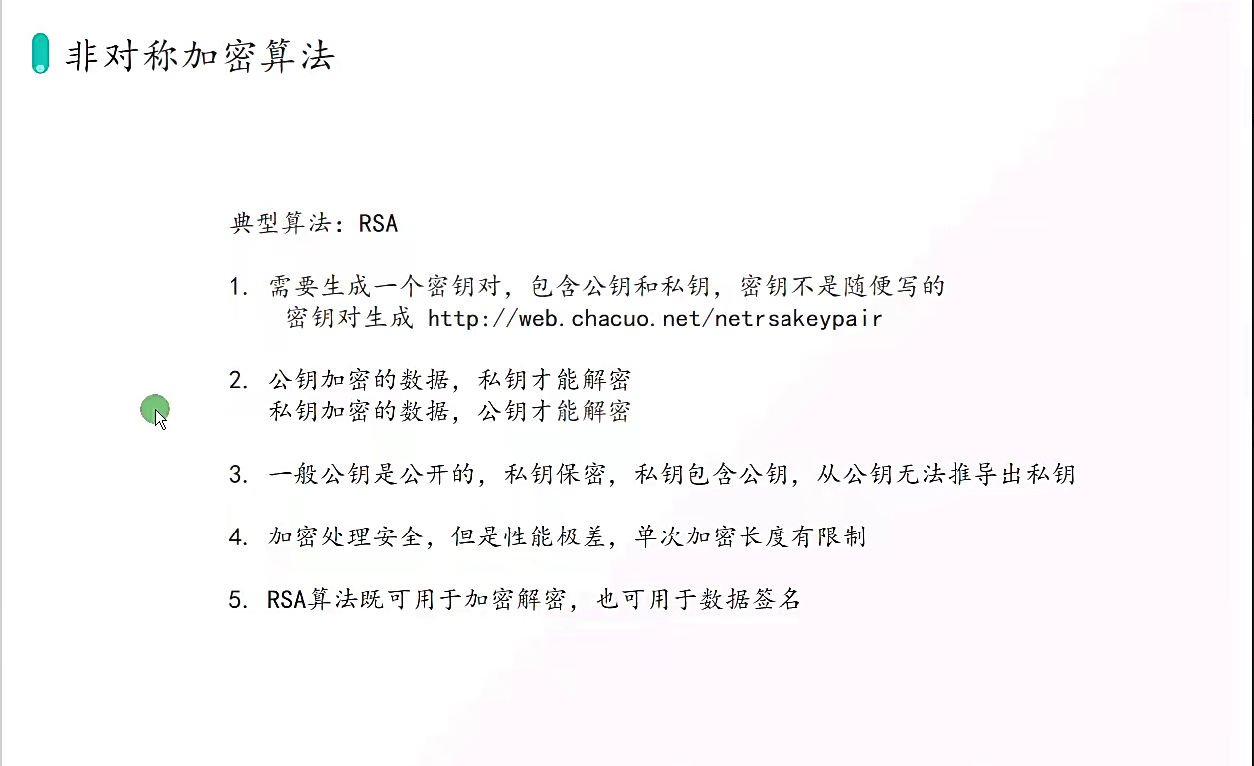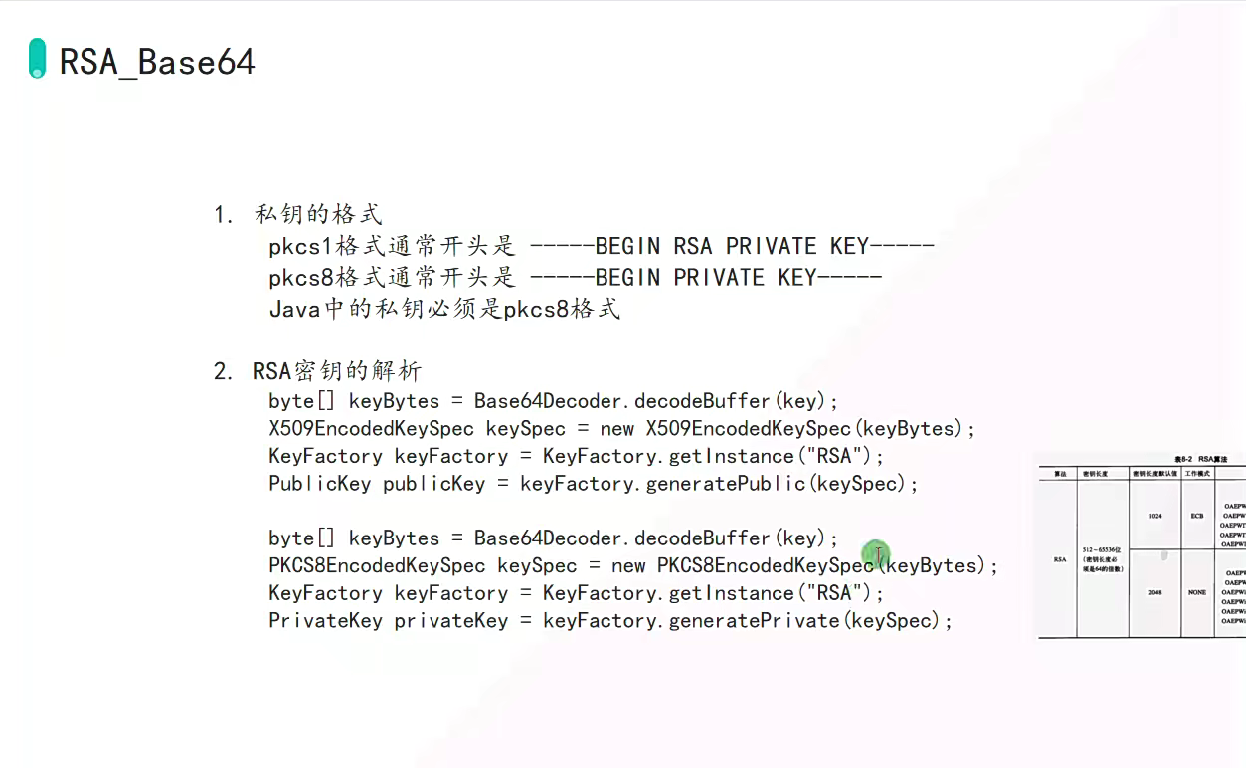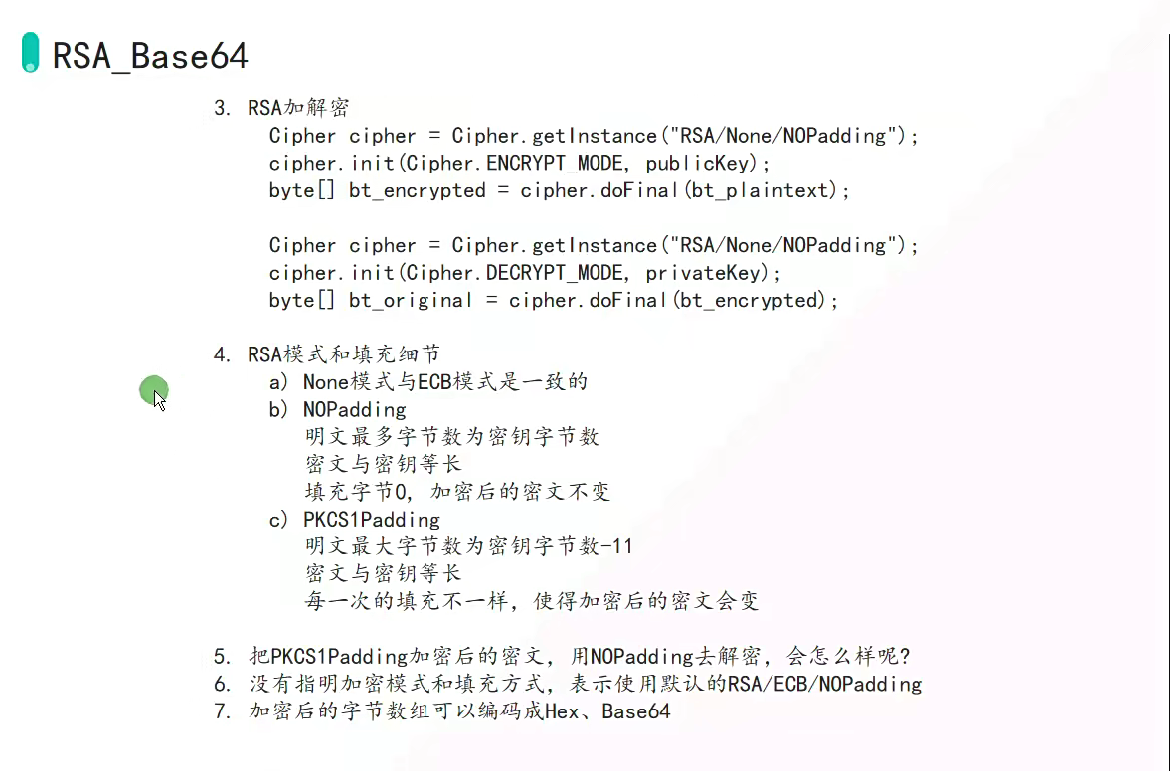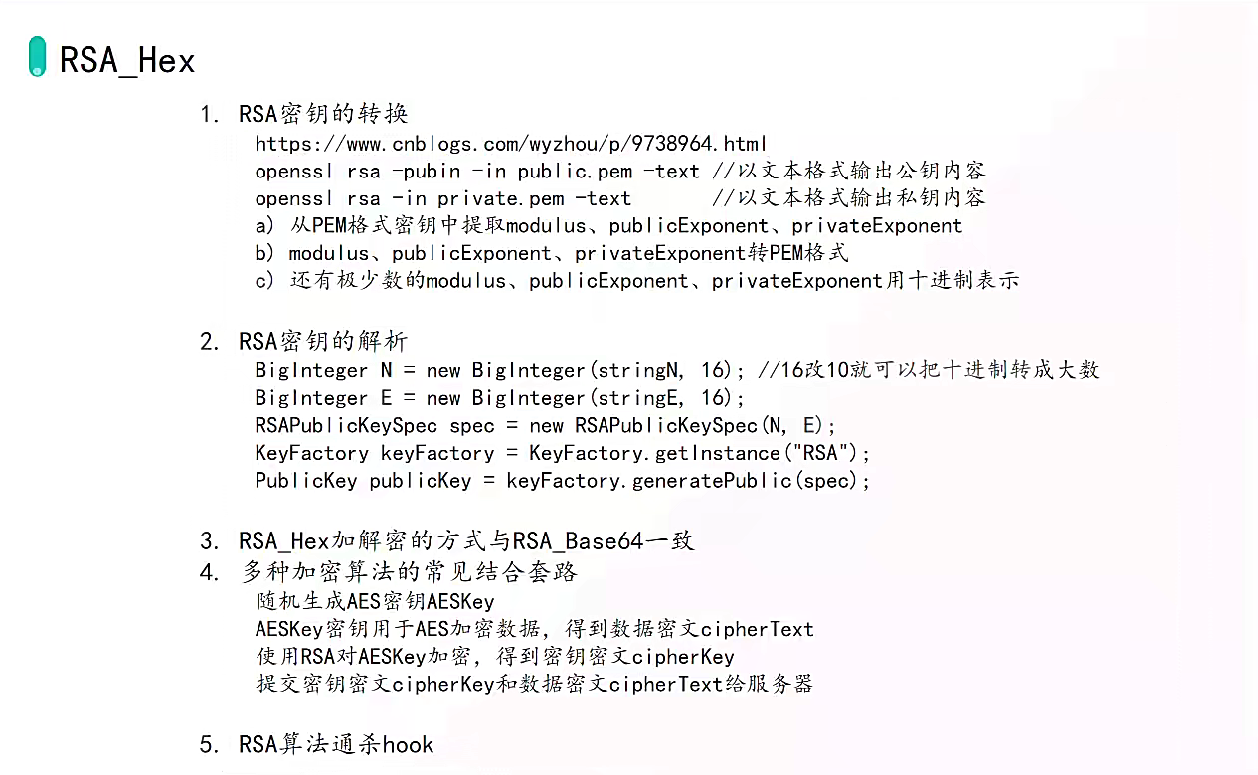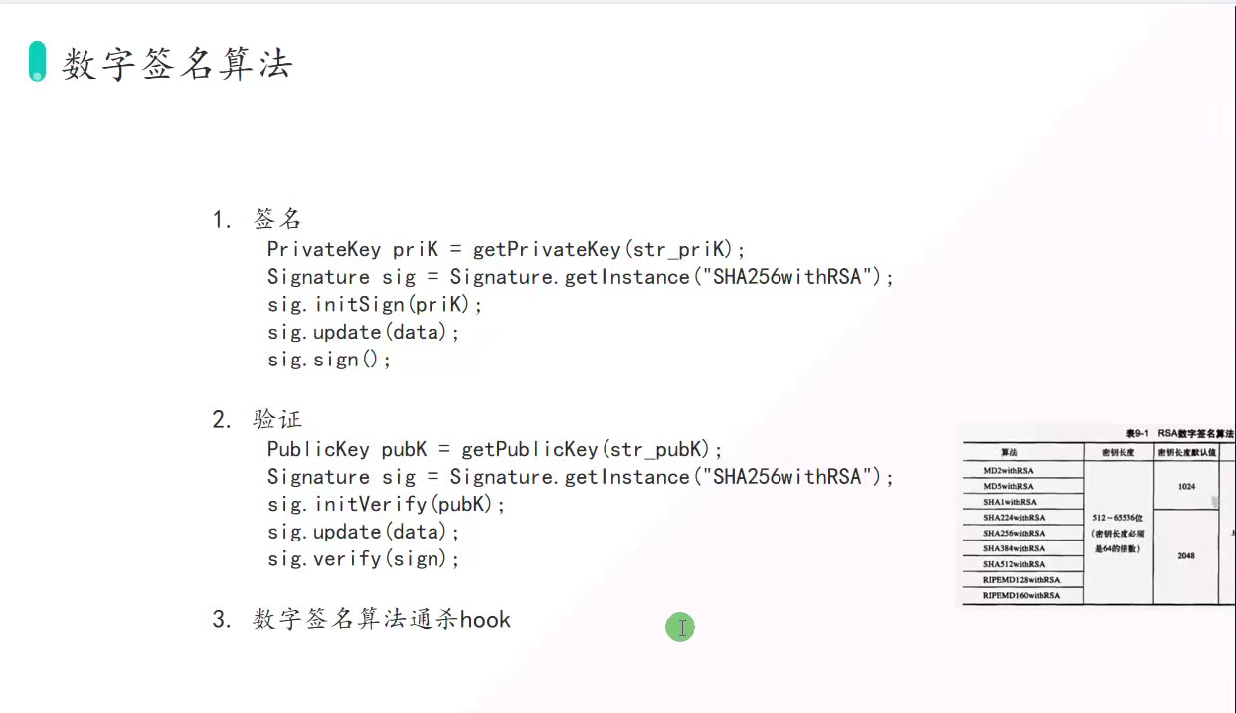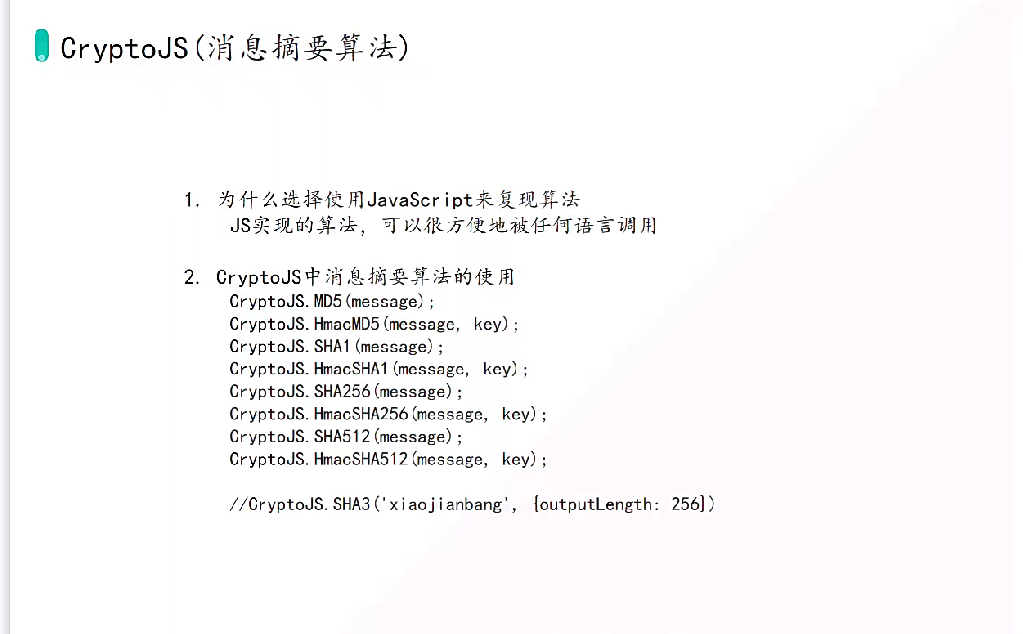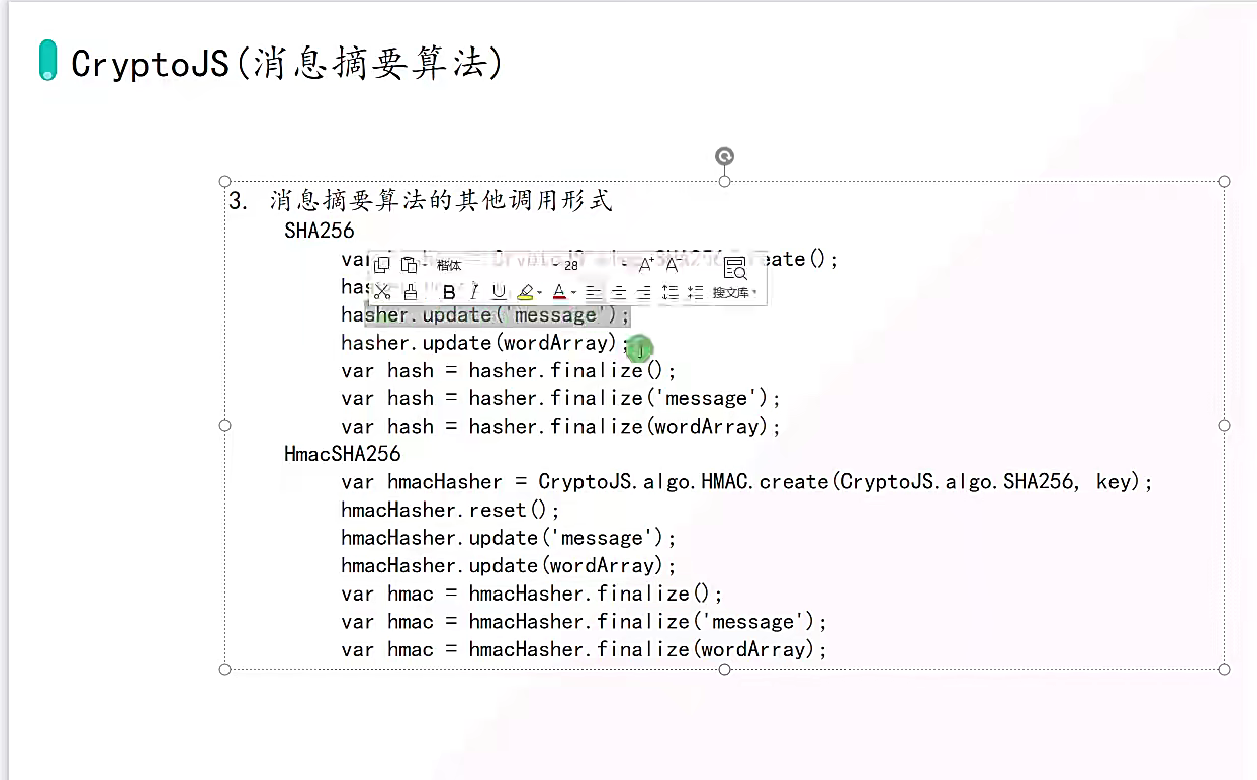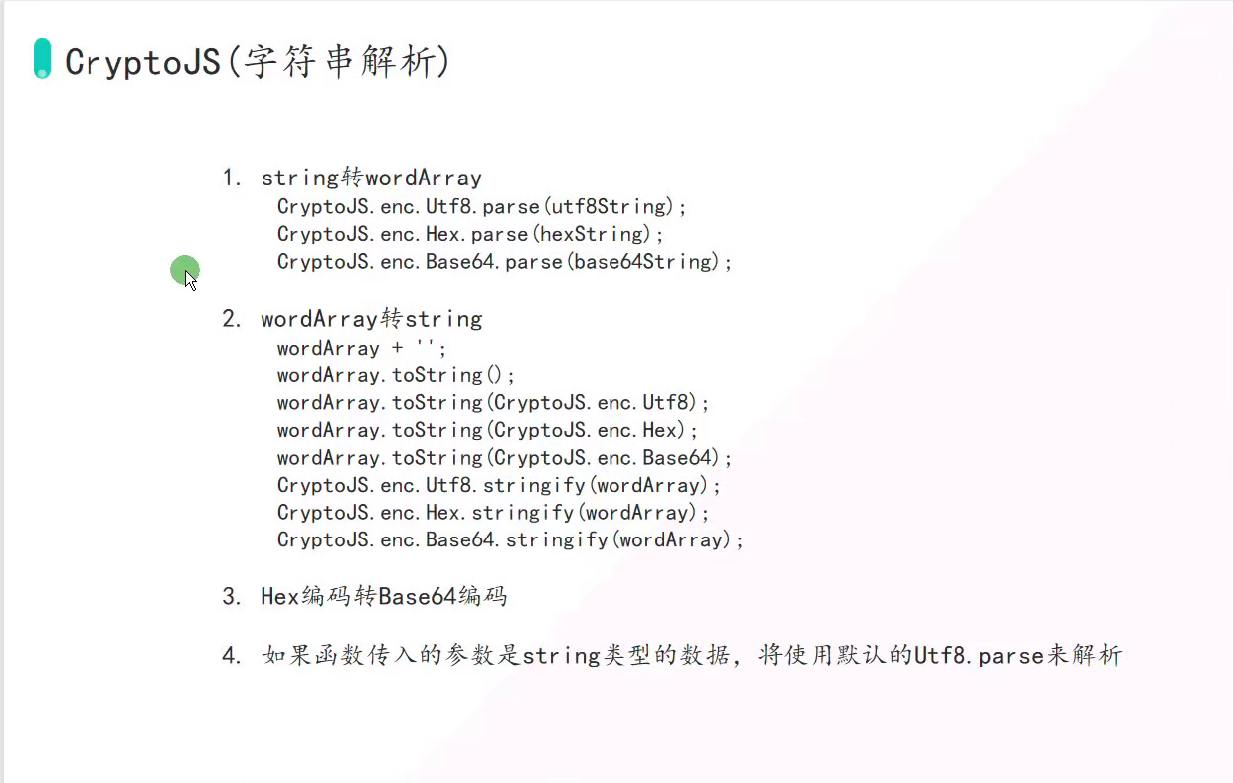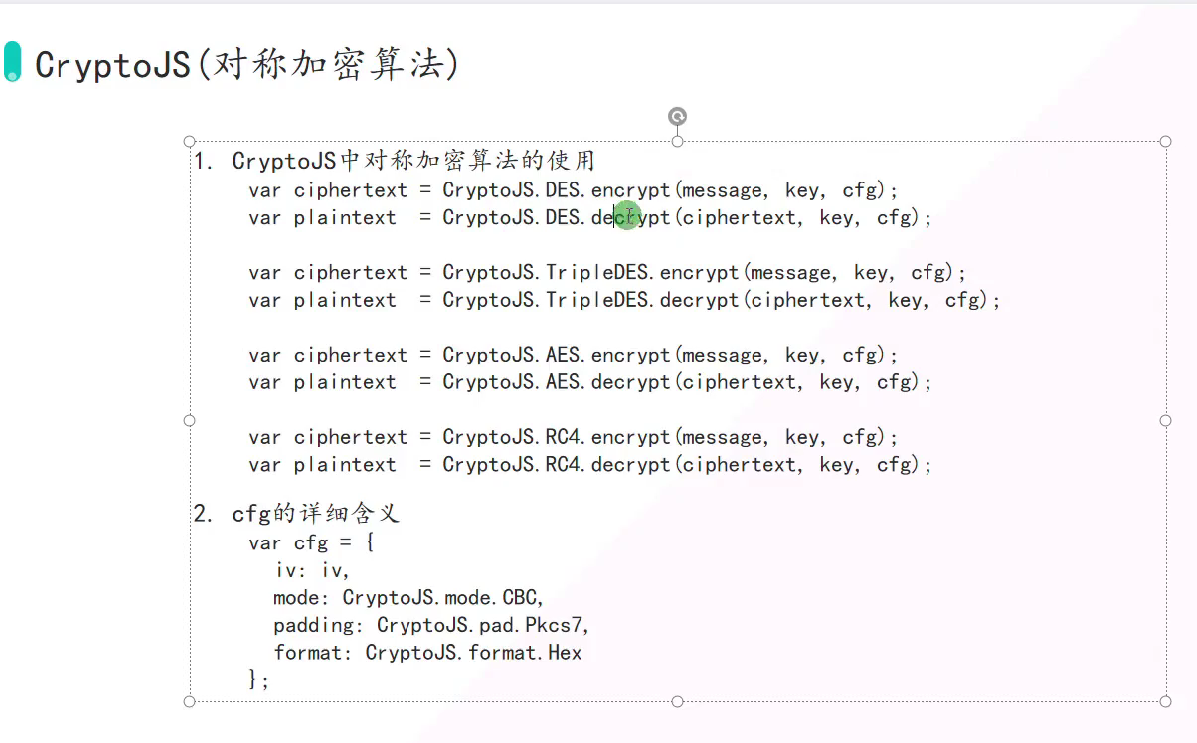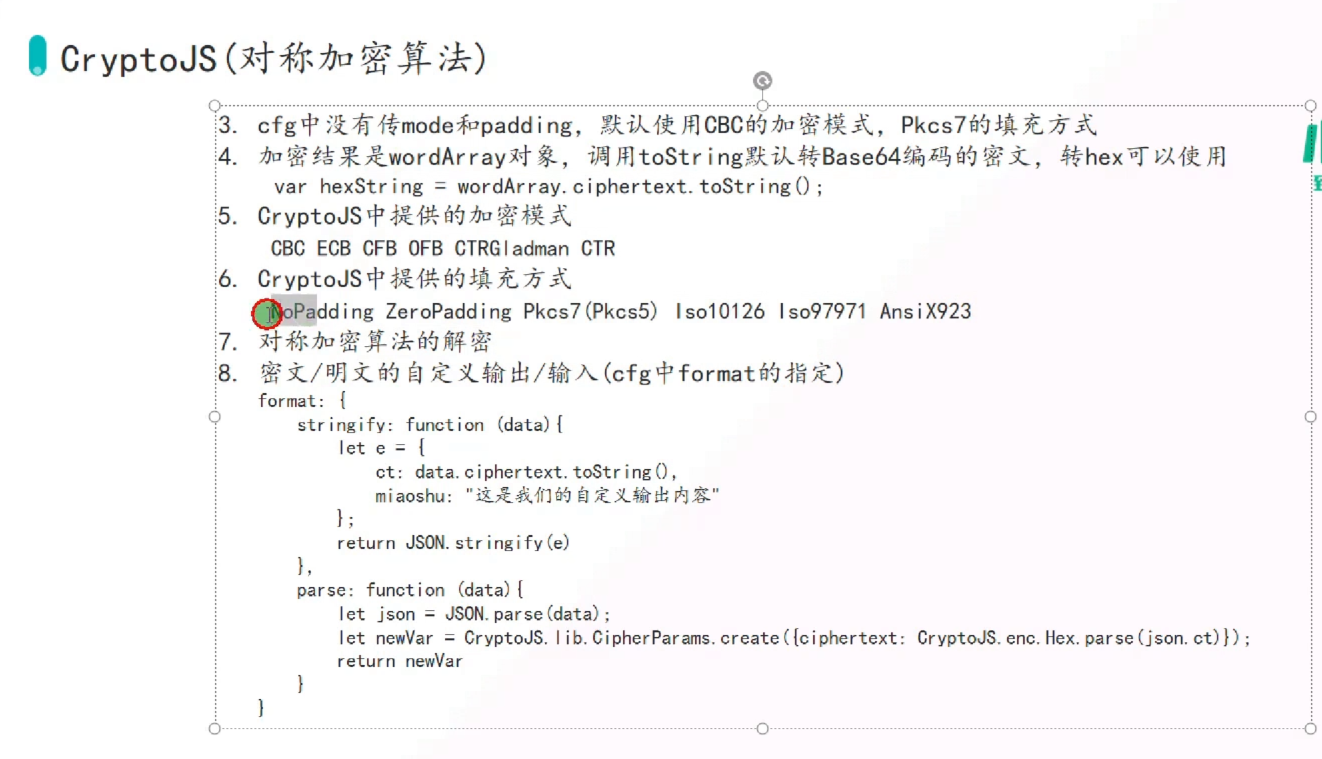Java.perform(function () {
function showStacks() {
console.log(
Java.use("android.util.Log")
.getStackTraceString(
Java.use("java.lang.Throwable").$new()
)
);
}
var ByteString = Java.use("com.android.okhttp.okio.ByteString");
function toBase64(tag, data) {
console.log(tag + " Base64: " + ByteString.of(data).base64());
}
function toHex(tag, data) {
console.log(tag + " Hex: " + ByteString.of(data).hex());
}
function toUtf8(tag, data) {
console.log(tag + " Utf8: " + ByteString.of(data).utf8());
}
var messageDigest = Java.use("java.security.MessageDigest");
messageDigest.update.overload('byte').implementation = function (data) {
console.log("MessageDigest.update('byte') is called!");
console.log("=======================================================");
return this.update(data);
}
messageDigest.update.overload('java.nio.ByteBuffer').implementation = function (data) {
console.log("MessageDigest.update('java.nio.ByteBuffer') is called!");
console.log("=======================================================");
return this.update(data);
}
messageDigest.update.overload('[B').implementation = function (data) {
console.log("MessageDigest.update('[B') is called!");
showStacks();
var algorithm = this.getAlgorithm();
var tag = algorithm + " update data";
toUtf8(tag, data);
toHex(tag, data);
toBase64(tag, data);
console.log("=======================================================");
return this.update(data);
}
messageDigest.update.overload('[B', 'int', 'int').implementation = function (data, start, length) {
console.log("MessageDigest.update('[B', 'int', 'int') is called!");
showStacks();
var algorithm = this.getAlgorithm();
var tag = algorithm + " update data";
toUtf8(tag, data);
toHex(tag, data);
toBase64(tag, data);
console.log("=======================================================", start, length);
return this.update(data, start, length);
}
messageDigest.digest.overload().implementation = function () {
console.log("MessageDigest.digest() is called!");
showStacks();
var result = this.digest();
var algorithm = this.getAlgorithm();
var tag = algorithm + " digest result";
toUtf8(tag, result);
toHex(tag, result);
toBase64(tag, result);
console.log("=======================================================");
return result;
}
messageDigest.digest.overload('[B').implementation = function (data) {
console.log("MessageDigest.digest('[B') is called!");
showStacks();
var algorithm = this.getAlgorithm();
var tag = algorithm + " digest data";
toUtf8(tag, data);
toHex(tag, data);
toBase64(tag, data);
var result = this.digest(data);
var tags = algorithm + " digest result";
toUtf8(tag, result);
toHex(tags, result);
toBase64(tags, result);
console.log("=======================================================");
return result;
}
messageDigest.digest.overload('[B', 'int', 'int').implementation = function (data, start, length) {
console.log("MessageDigest.digest('[B', 'int', 'int') is called!");
showStacks();
var algorithm = this.getAlgorithm();
var tag = algorithm + " digest data";
toUtf8(tag, data);
toHex(tag, data);
toBase64(tag, data);
var result = this.digest(data, start, length);
var tags = algorithm + " digest result";
toHex(tags, result);
toBase64(tags, result);
console.log("=======================================================", start, length);
return result;
}
var mac = Java.use("javax.crypto.Mac");
mac.init.overload('java.security.Key', 'java.security.spec.AlgorithmParameterSpec').implementation = function (key, AlgorithmParameterSpec) {
console.log("Mac.init('java.security.Key', 'java.security.spec.AlgorithmParameterSpec') is called!");
console.log("=======================================================");
return this.init(key, AlgorithmParameterSpec);
}
mac.init.overload('java.security.Key').implementation = function (key) {
console.log("Mac.init('java.security.Key') is called!");
var algorithm = this.getAlgorithm();
var tag = algorithm + " init Key";
var keyBytes = key.getEncoded();
toUtf8(tag, keyBytes);
toHex(tag, keyBytes);
toBase64(tag, keyBytes);
console.log("=======================================================");
return this.init(key);
}
mac.update.overload('byte').implementation = function (data) {
console.log("Mac.update('byte') is called!");
return this.update(data);
}
mac.update.overload('java.nio.ByteBuffer').implementation = function (data) {
console.log("Mac.update('java.nio.ByteBuffer') is called!");
console.log("=======================================================");
return this.update(data);
}
mac.update.overload('[B').implementation = function (data) {
console.log("Mac.update('[B') is called!");
var algorithm = this.getAlgorithm();
var tag = algorithm + " update data";
toUtf8(tag, data);
toHex(tag, data);
toBase64(tag, data);
console.log("=======================================================");
return this.update(data);
}
mac.update.overload('[B', 'int', 'int').implementation = function (data, start, length) {
console.log("Mac.update('[B', 'int', 'int') is called!");
var algorithm = this.getAlgorithm();
var tag = algorithm + " update data";
toUtf8(tag, data);
toHex(tag, data);
toBase64(tag, data);
console.log("=======================================================", start, length);
return this.update(data, start, length);
}
mac.doFinal.overload().implementation = function () {
console.log("Mac.doFinal() is called!");
var result = this.doFinal();
var algorithm = this.getAlgorithm();
var tag = algorithm + " doFinal result";
toUtf8(tag, result);
toHex(tag, result);
toBase64(tag, result);
console.log("=======================================================");
return result;
}
mac.doFinal.overload('[B').implementation = function (data) {
console.log("Mac.doFinal.overload('[B') is called!");
return this.doFinal(data);
}
mac.doFinal.overload('[B', 'int').implementation = function (output, outOffset) {
console.log("Mac.doFinal.overload('[B', 'int') is called!");
console.log("=======================================================");
return this.doFinal(output, outOffset);
}
var cipher = Java.use("javax.crypto.Cipher");
cipher.init.overload('int', 'java.security.cert.Certificate').implementation = function () {
console.log("Cipher.init('int', 'java.security.cert.Certificate') is called!");
console.log("=======================================================");
return this.init.apply(this, arguments);
}
cipher.init.overload('int', 'java.security.Key', 'java.security.SecureRandom').implementation = function () {
console.log("Cipher.init('int', 'java.security.Key', 'java.security.SecureRandom') is called!");
console.log("=======================================================");
return this.init.apply(this, arguments);
}
cipher.init.overload('int', 'java.security.cert.Certificate', 'java.security.SecureRandom').implementation = function () {
console.log("Cipher.init('int', 'java.security.cert.Certificate', 'java.security.SecureRandom') is called!");
console.log("=======================================================");
return this.init.apply(this, arguments);
}
cipher.init.overload('int', 'java.security.Key', 'java.security.AlgorithmParameters', 'java.security.SecureRandom').implementation = function () {
console.log("Cipher.init('int', 'java.security.Key', 'java.security.AlgorithmParameters', 'java.security.SecureRandom') is called!");
console.log("=======================================================");
return this.init.apply(this, arguments);
}
cipher.init.overload('int', 'java.security.Key', 'java.security.spec.AlgorithmParameterSpec', 'java.security.SecureRandom').implementation = function () {
console.log("Cipher.init('int', 'java.security.Key', 'java.security.spec.AlgorithmParameterSpec', 'java.security.SecureRandom') is called!");
console.log("=======================================================");
return this.init.apply(this, arguments);
}
cipher.init.overload('int', 'java.security.Key', 'java.security.AlgorithmParameters').implementation = function () {
console.log("Cipher.init('int', 'java.security.Key', 'java.security.AlgorithmParameters') is called!");
console.log("=======================================================");
return this.init.apply(this, arguments);
}
cipher.init.overload('int', 'java.security.Key').implementation = function () {
console.log("Cipher.init('int', 'java.security.Key') is called!");
var algorithm = this.getAlgorithm();
var tag = algorithm + " init Key";
var className = JSON.stringify(arguments[1]);
if(className.indexOf("OpenSSLRSAPrivateKey") === -1){
var keyBytes = arguments[1].getEncoded();
toUtf8(tag, keyBytes);
toHex(tag, keyBytes);
toBase64(tag, keyBytes);
}
console.log("=======================================================");
return this.init.apply(this, arguments);
}
cipher.init.overload('int', 'java.security.Key', 'java.security.spec.AlgorithmParameterSpec').implementation = function () {
console.log("Cipher.init('int', 'java.security.Key', 'java.security.spec.AlgorithmParameterSpec') is called!");
var algorithm = this.getAlgorithm();
var tag = algorithm + " init Key";
var keyBytes = arguments[1].getEncoded();
toUtf8(tag, keyBytes);
toHex(tag, keyBytes);
toBase64(tag, keyBytes);
var tags = algorithm + " init iv";
var iv = Java.cast(arguments[2], Java.use("javax.crypto.spec.IvParameterSpec"));
var ivBytes = iv.getIV();
toUtf8(tags, ivBytes);
toHex(tags, ivBytes);
toBase64(tags, ivBytes);
console.log("=======================================================");
return this.init.apply(this, arguments);
}
cipher.doFinal.overload('java.nio.ByteBuffer', 'java.nio.ByteBuffer').implementation = function () {
console.log("Cipher.doFinal('java.nio.ByteBuffer', 'java.nio.ByteBuffer') is called!");
console.log("=======================================================");
return this.doFinal.apply(this, arguments);
}
cipher.doFinal.overload('[B', 'int').implementation = function () {
console.log("Cipher.doFinal('[B', 'int') is called!");
console.log("=======================================================");
return this.doFinal.apply(this, arguments);
}
cipher.doFinal.overload('[B', 'int', 'int', '[B').implementation = function () {
console.log("Cipher.doFinal('[B', 'int', 'int', '[B') is called!");
console.log("=======================================================");
return this.doFinal.apply(this, arguments);
}
cipher.doFinal.overload('[B', 'int', 'int', '[B', 'int').implementation = function () {
console.log("Cipher.doFinal('[B', 'int', 'int', '[B', 'int') is called!");
console.log("=======================================================");
return this.doFinal.apply(this, arguments);
}
cipher.doFinal.overload().implementation = function () {
console.log("Cipher.doFinal() is called!");
console.log("=======================================================");
return this.doFinal.apply(this, arguments);
}
cipher.doFinal.overload('[B').implementation = function () {
console.log("Cipher.doFinal('[B') is called!");
showStacks();
var algorithm = this.getAlgorithm();
var tag = algorithm + " doFinal data";
var data = arguments[0];
toUtf8(tag, data);
toHex(tag, data);
toBase64(tag, data);
var result = this.doFinal.apply(this, arguments);
var tags = algorithm + " doFinal result";
toUtf8(tags, result);
toHex(tags, result);
toBase64(tags, result);
console.log("=======================================================");
return result;
}
cipher.doFinal.overload('[B', 'int', 'int').implementation = function () {
console.log("Cipher.doFinal('[B', 'int', 'int') is called!");
showStacks();
var algorithm = this.getAlgorithm();
var tag = algorithm + " doFinal data";
var data = arguments[0];
toUtf8(tag, data);
toHex(tag, data);
toBase64(tag, data);
var result = this.doFinal.apply(this, arguments);
var tags = algorithm + " doFinal result";
toUtf8(tags, result);
toHex(tags, result);
toBase64(tags, result);
console.log("=======================================================", arguments[1], arguments[2]);
return result;
}
});
|
